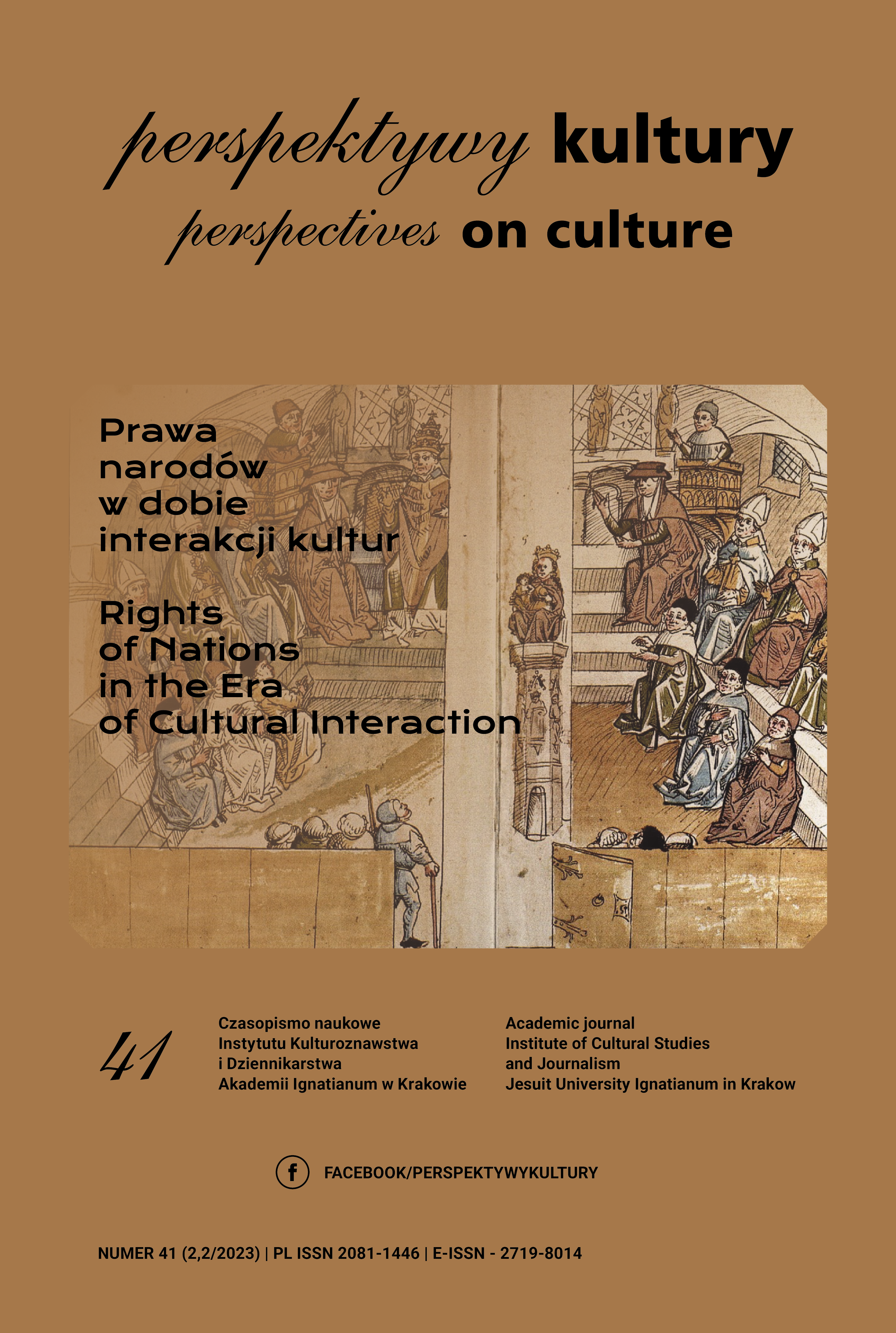Contemporary Taiwanese Aboriginal Literature as a Tool for Expressing Cultural Identity Based on the Example of Sakinu Ahronglong’s Work
Abstract
The rise of Aboriginal literature in Taiwan is directly linked to the development of a movement demanding rights for indigenous peoples in the 1990s. Crucial to this were the rights to cultivate their cultural identity, to use their indigenous language, and to indigenous land and natural resources. In this article, through an anthropological analysis of Taiwanese Aboriginal literature, using the example of the short story collection Boar, Flying Squirrel and Sakinu by a writer from the Paiwan people, Sakinu Ahronglong, an attempt is made to present the contemporary situation of Taiwanese Aborigines and their struggle for respect for cultural rights, customs and ethnic identity.
References
Alsford, N.J.P. (2021). Population movements and the construction of modern tradition within contemporary Taiwan indigenous society. W: Chia-yuan Huang, D. Davies i D. Fell (red.), Taiwan’s Contemporary In-digenous Peoples. Nowy Jork: Routledge.
Anderson, Ch.A. (2009). New Austronesian Voyaging. Cultivating Amis Folk Songs for the International Stage. W: D. Blundell (red.), Austrone-sian Taiwan. Lingusitics, History, Ethnology, Prehistory. Taipei: SMC Publishing.
Bachner, A. (2016). Cultural Margins, Hybrid Scripts Bigraphism and Translation in Taiwanese Indigenous Writing. Journal of World Litera-ture, nr 1.
Badai (2013). Sorceress Diguwan. Taipei: Serenity International.
Barclay, P.D. (2018). Outcasts of Empire: Japan’s Rule on Taiwan’s “Sav-age Border”, 1874–1945. Oakland: University of California Press.
Bhabha, H.K. (2010). Miejsca kultury. Kraków: Wydawnictwo Uniwersy-tetu Jagiellońskiego.
Blundell, D. (2009). Languages connecting the world. W: D. Blundell (red.), Austronesian Taiwan. Lingusitics, History, Ethnology, Prehistory. Taipei: SMC Publishing.
Chia-yuan Huang, Davies, D. i Fell, D. (2021). Taiwan’s contemporary Indigenous peoples. W: Chia-yuan Huang, D. Davies i D. Fell, Taiwan’s Contemporary Indigenous Peoples. New York: Routledge.
Chih-fan Chen i Kuei-fen Chiu (2021). Indigenous literature in contempo-rary Taiwan. W: Chia-yuan Huang, D. Davies i D. Fell, Taiwan’s Con-temporary Indigenous Peoples. New York: Routledge.
Cherrington, M. (2008). Resurrection. Cultural Survival Quarterly, De-cember. Pozyskano z: https://www.culturalsurvival.org/publications/cultural-survival-quarterly/resurrection (dostęp: 19.01.2021).
Fanon, F. (2020). Czarna skóra, białe twarze. Kraków: Karakter.
Geertz, C. (2005). Interpretacja kultur. Wybrane eseje. Kraków: WUJ.
Kuei-fen Chiu, Aboriginal literature and the Rise of the Taiwanese New Cultural/ Historical Imaginary in Contemporary Taiwan. Pozyskano z: https://www.soas.ac.uk/taiwanstudies/eats/eats2008/file43155.pdf (dostęp: 22.02.2022).
Kuei-fen Chiu (2009). The Production of Indigeneity: Contemporary Indig-enous Literature in Taiwan and Trans-Cultural Inheritance. The China Quarterly, No. 200.
Kuei-fen Chiu (2013). Cosmopolitanism and Indigenism: The Uses of Cul-tural Authenticity in an Age of Flows. New Literary History, Vol. 44, No. 1.
Kwok, M. (1978–1979). Dance and Cultural Identity among the Paiwan Tribe of Pingtung County, Taiwan. Dance Research Journal, Vol. 11, No. ½.
Morris, J.X. (2018). The Dirty Secret of Taiwan’s Fishing Industry. The Diplomat, May 18. Pozyskano z: https://thediplomat.com/2018/05/the-dirty-secret-of-taiwans-fishing-industry/(dostęp: 04.09.2020).
Pei-yi Guo (2019). Pacific Studies and Comparative Austronesian Studies in Taiwan. JRCA, Vol. 20, No. 2, 163–201.
Sakinu Ahronglong – Sā kě nǔ Yà róng long (2020). Shanzhu, feishu, Sakenu. Táiběi: Yélǔ guójì wénhuà yǒuxiàn gōngsī.
Sakinu Ahronglong (2022). Hunter School. Seul: Homnford Star.
Sterk, D. (2012). The Indian Gift and the Taiwan Indigenous Literary Hunters Gift: Individual, Social and Ecological Meanings of the Hunter’s Gift in Contemporary Fables of Taiwan Indigenous Identity. Studia Orientalia Slovaca, 11.1.
Stokłosa, T. (2013). Od kolonializmu do literatury postkolonialnej. Anuari de Filologia. Llengües i Literatures Modernes, 3.
Syaman Rapongan (2021). Xià màn, Lánbōān, Lěng hǎi qíng shēn, Liánhé wénxué chūbǎn shè gǔfèn yǒuxiàn gōngsī. Táiběi.
Yu Guanghong i Li Liwen (2012). Taiwan Shaoshu Minzu. Fuzhou: Fujian Renmin chuban she.
Copyright (c) 2023 Jesuit University Ignatianum in Krakow

This work is licensed under a Creative Commons Attribution 4.0 International License.
Autor, zgłaszając swój artykuł, wyraża zgodę na korzystanie przez Wydawnictwo Uniwersystet Ignatianum z utworu na następujących polach eksploatacji:
- utrwalania utworu w formie papierowej, a także na nośniku cyfrowym lub magnetycznym;
- zwielokrotnienia utworu dowolną techniką, bez ograniczenia ilości wydań i liczby egzemplarzy;
- rozpowszechniania utworu i jego zwielokrotnionych egzemplarzy na jakimkolwiek nośniku, w tym wprowadzenia do obrotu, sprzedaży, użyczenia, najmu;
- wprowadzenia utworu do pamięci komputera;
- rozpowszechniania utworu w sieciach informatycznych, w tym w sieci Internet;
- publicznego wykonania, wystawienia, wyświetlenia, odtworzenia oraz nadawania i reemitowania, a także publicznego udostępniania utworu w taki sposób, aby każdy mógł mieć do niego dostęp w miejscu i czasie przez siebie wybranym.
Wydawca zobowiązuje się szanować osobiste prawa autorskie do utworu.





